Outsourcing Customer Service: Pros and Cons You Need to Know

If you think of outsourcing customer services, the chances are that support is already taking a good chunk of time out of our core staff, and you still feel it’s not enough to cover all customer concerns.
With 93% of customers saying that customer service is very important to them when deciding whether or not to make a repeat purchase, it's important to weigh the benefits and drawbacks carefully before deciding to outsource customer service.
So, how do you guarantee that a customer service outsourcing company will perform better than an in-house staff? Does outsourcing make sense and pay off in the long run for your particular business? Is there a way to foresee both the upsides and the drawbacks of outsourcing? 🤔
These are just a few of the questions to answer, and this article with the pros and cons of customer service outsourcing is here to clear up any confusion you may have.
FYI: Even though we're in the outsourcing business and might be partial on this issue, we don't think every company should outsource their customer service. So, don't worry; we'll maintain as much objectivity as possible.
Outsourcing Customer Service Pros and Cons

Pros of Outsourcing Customer Service
So, here come the key advantages of outsourcing customer service.
Operational cost savings
Operational cost savings from outsourcing customer service can be substantial. In fact, companies may achieve a reduction in costs by up to 60% when outsourcing to an offshore company compared to maintaining in-house operations.
Just think about it – the costs of hiring and training staff, buying tools for measuring their performance, managing and maintaining a whole new department.
In a nutshell, with customer service outsourcing, you can save money on:
✅ Hiring & onboarding full-time employees
✅ Retaining full-time employees (benefits packages etc.)
✅ Costs otherwise spent on training
✅ Office equipment and other utilities
✅ Tools and software needed to scale
As a result, outsourcing can help a business run more efficiently financially, allowing more money to be put into the company's core operations, where it will have the greatest impact on growth and competitive advantage.
Reduced First Response Time with 24/7 availability
Imagine a world where your company operates 24/7 and answers customer questions as quickly as a meteor. Tickets might come late at night, yet your First Response Time (FRT) will remain minimal. This is an easy-to-achieve goal with customer support outsourcing.
Consider the case of one of EverHelp's customers, who reduced their FRT from 10 hours to 30 minutes in a quarter of a year with 24/7 customer support.
As a result, quick response times, in combination with high service quality, expert language, and care, greatly boost customer satisfaction and loyalty, skyrocketing your loyalty.
High expertise & self-organized training
Outsourcing companies have a pool of skilled customer service representatives who are well-trained to handle different types of tickets, customers, and situations. You don’t need to spend time (and money) on getting your customer service team ready to handle requests proficiently.
These are multilingual specialists, as well as individuals generally trained in handling tickets suitably for a specific business niche or a certain company culture.
For instance, an e-commerce brand of quirky, colorful sunglasses will have a different style of communication compared to an app for learning languages or pre-kindergarten learning software. Catering to your specific customers is crucial, and companies like EverHelp can help you find that voice.
Optimized with state-of-the-art technology
An outsourced company whose whole business is dealing with customer service requests has a unique experience in working with omnichannel support software, chatbots, and other state-of-the-art technology.
They can help you choose tech options that work best for your business, with no need to do extra research. Also, some tech solutions are already included in the price for customer service support, so you don’t need to spend extra resources.
Also, most outsourcing companies are trained in cultural nuances, and language proficiency ensures that communication is clear and culturally sensitive, enhancing the customer experience.
Flexibility based on season
Flexibility is another key benefit of outsourcing. Scale your team size up and down according to seasonal or other business demands. By having the possibility to customize customer support needs, businesses can save costs, as well as provide superb service to their customers in case of an unforeseen volume of tickets.
So, in unexpected spikes in service requests or emergencies, you can feel safe and sound with customer support outsourcing.
Reducing workload stress for employees
Department management is complex and requires a large team of experts to ensure efficiency. The company's primary focus should be on providing the best possible product or service, and shifting that focus to building a support team from scratch could detract from that.
Outsourcing services relieves companies of the responsibility of providing customer service. Delegate your operational duties to spend more time doing what you love.

Smooth business scaling
Scaling your operations to meet rising customer service demands can take time as your business grows in size and popularity. Outsourcing companies can easily handle this scalability on your behalf.
You won't have to stress over finding bigger digs or hiring more staff. If you outsource, you can rest assured that your customers will have a positive experience no matter how your needs evolve.
Cons of Outsourcing Customer Service
As powerful as outsourcing customer service is, it's also important to consider potential outsourcing disadvantages to be aware of (with small tips on how to handle them).
Privacy and data protection
Dealing with people is always a sensitive topic. For instance, this year, Discord informed users of data breach (around 150 million monthly active users could be affected) involving customer support provider.
That’s why privacy and data protection concerns are at the forefront of customer service outsourcing drawbacks.
Customers often share personal information with support representatives, from their names and addresses to credit card information. This makes it essential for outsourcing providers to ensure that customer data is handled securely. This commitment must be more than just protocol—it must be an ingrained part of the company culture.
Quick Tip: To mitigate privacy and data protection issues in customer service outsourcing, establish a comprehensive data security framework that includes encryption, regular audits, and strict access controls. Also, make sure that an outsourcing company invests in high-grade encryption technologies to protect data and conducts staff training on security policies.
Less control
You must be ready to delegate the control and trust your vendor or partner to keep your best interests in place.
Companies usually face the following challenges in terms of control and oversight when customer service operations are outsourced:
- Quality Control: When a team isn't physically present, it's harder to provide consistent, high-quality customer service. When compared to remote teams, in-house ones benefit from easier accessibility for direct observation and immediate feedback.
- Training and brand alignment: Customer service agents working from a distance are usually less engaged with the company's ethos and mission. Companies that lack the resources to host in-person training sessions and workshops need to develop efficient methods of conveying these concepts to employees.
Quick Tip: During the interview, highly professional outsourcing companies should ask for in-depth instruction on the company policies, values, communication style, and etc. Also, at the beginning, you should regularly monitor how the outsourcing company aligns with the chosen strategy and provide ongoing revisions.
To overcome this drawback at EverHelp, we offer a highly trained QA team to support your team. The QA team pulls tickets for each agent weekly and holds ongoing coaching meetings during the lifetime of your account. We'll work with you to understand your desired outcomes and develop our custom action plan and an SLA (Service-Level Alignment) for your review and approval.
Communication challenges
Managing remote or outsourced customer service teams presents unique communication and control challenges. Successful operations, satisfied customers, and prompt problem resolution all hinge on open lines of communication. Outsourced teams face unique difficulties and a greater risk of miscommunication due to potential cultural differences.
Quick Tip: Cultural sensitivity training can reduce the likelihood of misunderstandings and increase communication efficiency. A consistent flow of information can be maintained through a formalized communication plan. Companies can improve customer service outcomes by focusing on these areas to build a communication framework that supports the performance and integration of remote customer service teams.
Limited Product Knowledge
One major issue for companies that outsource their customer support functions is the possibility of insufficient product knowledge among external customer service agents. The point is that third-party representatives frequently juggle multiple client relationships. Since they probably don't have the time or interest to learn the ins and outs of each product, their knowledge may be more surface-level.
Quick Tip: Investing in extensive, ongoing training for these agents can improve product knowledge and service quality, even if customer service is outsourced. Helping external agents help you by giving them access to comprehensive documentation, FAQs, and troubleshooting guides. It is crucial to keep outside sales agents up-to-date on products through regular updates, newsletters, and training sessions so that they can compete effectively with in-house employees.
Short-term Focus
When a company decides to outsource its customer service needs, it will often enter into a contract with the company and hold the outsourced agency to certain performance metrics. In an effort to reduce metrics like average handle time (AHT), agents may give more weight to resolution times, making interactions feel more transactional.
However, these metrics have the potential to inadvertently promote a short-term focus that isn't necessarily in line with the company's long-term goals regarding its relationships with its customers. The problem of focusing too narrowly is explored further below.
Quick Tip: Incentives for employees based on customer loyalty and satisfaction over time can motivate a more personal approach. Companies can work with outsourced partners to develop a balanced scorecard that includes both efficiency and customer satisfaction metrics. Customer Effort Scores (CES), Customer Satisfaction Scores (CSAT), and Net Promoter Scores (NPS) are a few examples.
Dependency on the Vendor
Reliance on the vendor for customer service can be a major liability when the service is vital to the business. As the vendor takes on more responsibility and the company de-invests in in-house capabilities, it can be difficult to transition away from the vendor without disruption. A company that outsources customer service risks losing its expertise. Since much of the tacit knowledge and experience has been transferred to external providers, reassembling an in-house team is difficult.
Quick Tip: Include periodic reviews, performance-based adjustments, and reasonable exit strategies in contract negotiations to keep them flexible. Make sure your company owns and can access customer data at any time, per the contract.
8 Questions To Ask Before Outsourcing Customer Service
Before making a final decision with all the outsourcing customer service pros and cons at hand, we suggest you review 8 most important questions to ask yourself before outsourcing customer service support.
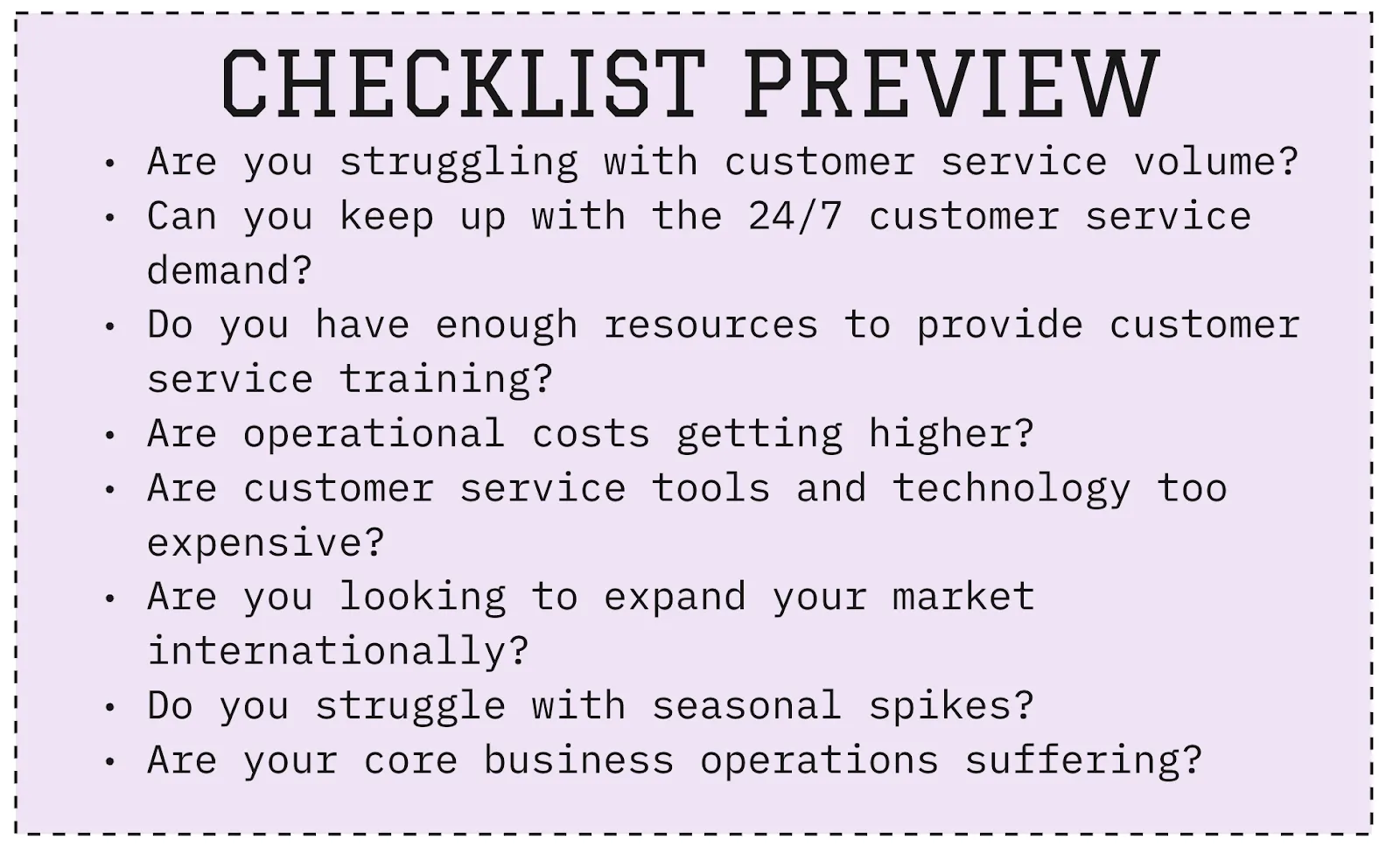
Spoiler alert: If you answer "YES" to at least one, chances are you will benefit greatly from outsourcing customer service.
Are you having trouble keeping up with a massive volume of customer service requests? Let's be honest here. If your current infrastructure is overwhelmed by customer inquiries, it means you are unable to provide adequate personalized attention to each customer (a basic requirement in highly competent 2023).
Worse, only one out of every 26 dissatisfied customers complains; the rest simply leave. In addition, it costs more money to acquire new customers than it does to retain existing ones.
Hiring an outsourced customer service provider is likely to save the day. Outsourcing services will manage the influx of inquiries efficiently, ensuring that every customer receives prompt and accurate responses. This means you'll be one step closer to achieving high levels of customer satisfaction and developing a positive market brand reputation (and increasing brand loyalty!).
Now for question number two. Can your company provide round-the-clock customer service? If the phrase "24/7 customer service" sends shivers up your spine, or if you're starting to look more like a night owl than a business leader, it may be time to consider hiring some outside help.
Why it matters? 96% of unhappy customers will not willingly do business again with you. By resolving issues as they arise, you can significantly reduce churn (saving thousands of dollars).
So, if you receive too many requests from customers around the clock, your company will require a dedicated team of business support agents who can ensure all of your customers are taken care of at all hours of the day and night. And this is where outsourcing comes in if you don’t have enough internal resources.
Customer service (as well as customer expectations) are constantly changing in today's ever-changing market. What has been described as excellent customer service may no longer be applicable today. That is why your customer service representatives require ongoing and consistent training.
If your in-house customer service team is inconsistent due to staff turnover or a lack of training, consider outsourcing to ensure a professional, consistent approach.
Do you want to run a low-cost, high-functioning customer service department? But are the costs of training, costly software upgrades, and maintaining a sizable in-house team making you clutch your wallet in despair?
If your customer service budget is consistently exceeded, your operational costs are probably too high. When you notice these signs, it may be time to consider outsourcing. By shifting to an outsourcing model, you'll be hiring a team of ready-to-go professionals, lowering costs, and optimizing operations, giving you the financial peace of mind you've been looking for.
To provide excellent customer service, you must use cutting-edge tools and technology, from team management to cutting-edge chatbots. However, it is not about subscribing to or purchasing a tool. There may be some unintended consequences:
- Initial costs: Implementing new customer service tools frequently incurs significant upfront costs. Determine whether these one-time expenses are feasible for your company.
- Upkeep and improvements: Upkeep and upgrades to new versions of tools can be an ongoing expense. Examine whether these expenses are in line with your company's financial objectives.
- Training expenses: Training your employees to use these technologies effectively takes time and resources. Can your company afford these long-term investments?
- Costs of integration: Integrating customer service tools with other systems may necessitate the hiring of IT experts and incurring additional costs.
If these costly technological pitfalls are causing your company to struggle, consider high-quality customer service outsourcing. You can finally get your hands on the sparkling array of customer service magic wands by partnering with an outsourcing provider. Furthermore, they will always be up to date, so you will never have to worry about outdated systems!
Isn't it exciting to imagine your company on an international stage? But hold your horses because entering foreign markets necessitates careful planning. To begin with, linguistic differences frequently complicate business negotiations, marketing, product labeling, and customer service. Finding local partners, researching the foreign market, logistics, and supply chain challenges, and hundreds of other things are also on the agenda.
Each of these challenges necessitates careful planning and strategy. Fortunately, outsourcing some of these responsibilities to professionals can assist in providing solutions and navigating these obstacles more efficiently.
Outsourcing customer service can help you connect with your international customers more effectively if you plan to expand your business globally but lack the necessary multilingual support.
Preparing your contact center for seasonal surges in demand is usually a combination of workplace management and the strategic use of automation technologies. While having enough employees and relevant resources on hand can help you operate successfully during peak periods, self-service technologies like chatbots, IVR, and self-serve email must also play a role.
If you're dealing with dramatic shifts in demand due to the time of year or around certain holidays, and your team is struggling to keep up, outsourcing could provide the flexibility you need to deal with these fluctuations.
Even during peak seasons, professional outsourcing can provide the extra hands you need to manage higher call volumes, ensure timely delivery, and maintain stellar customer satisfaction levels.
Finally, let us look beyond customer service and focus on other departments. Have you noticed that your core business operations have recently suffered?
Perhaps the demands of customer serv ice are diverting your attention away from your primary business functions. If your answer is a resounding yes, it's time to think about delegating this responsibility to a specialized service provider.
Bottom Line: It Depends on Your Unique Business Goals
No two companies are the same. While there are many good reasons why outsourcing customer service is a smart move for many businesses, this is not the case for everyone. By knowing pros and cons of outsourcing customer service, you can make a smarter decisions. Follow your best strategy, whether that's in-house management, outsourcing, etc.
To sum things up quickly, an in-house team may be preferable if (a) the founder values customer feedback highly and (b) the founder has the time and energy to handle all customer service inquiries on their own. But as your company expands (or expands in scope), and as your business objectives shift, this is where customer service outsourcing comes in.If your company experiences seasonal upticks, would like to expand internationally, or is simply looking to scale its customer service operations, outsourcing can be your savior.
All of the aforementioned concerns are addressed by EverHelp. Members of our team are serious about helping businesses of all kinds provide outstanding customer service. Schedule a call with us today to find out more about the ways in which our services can benefit your company in particular.





.webp)





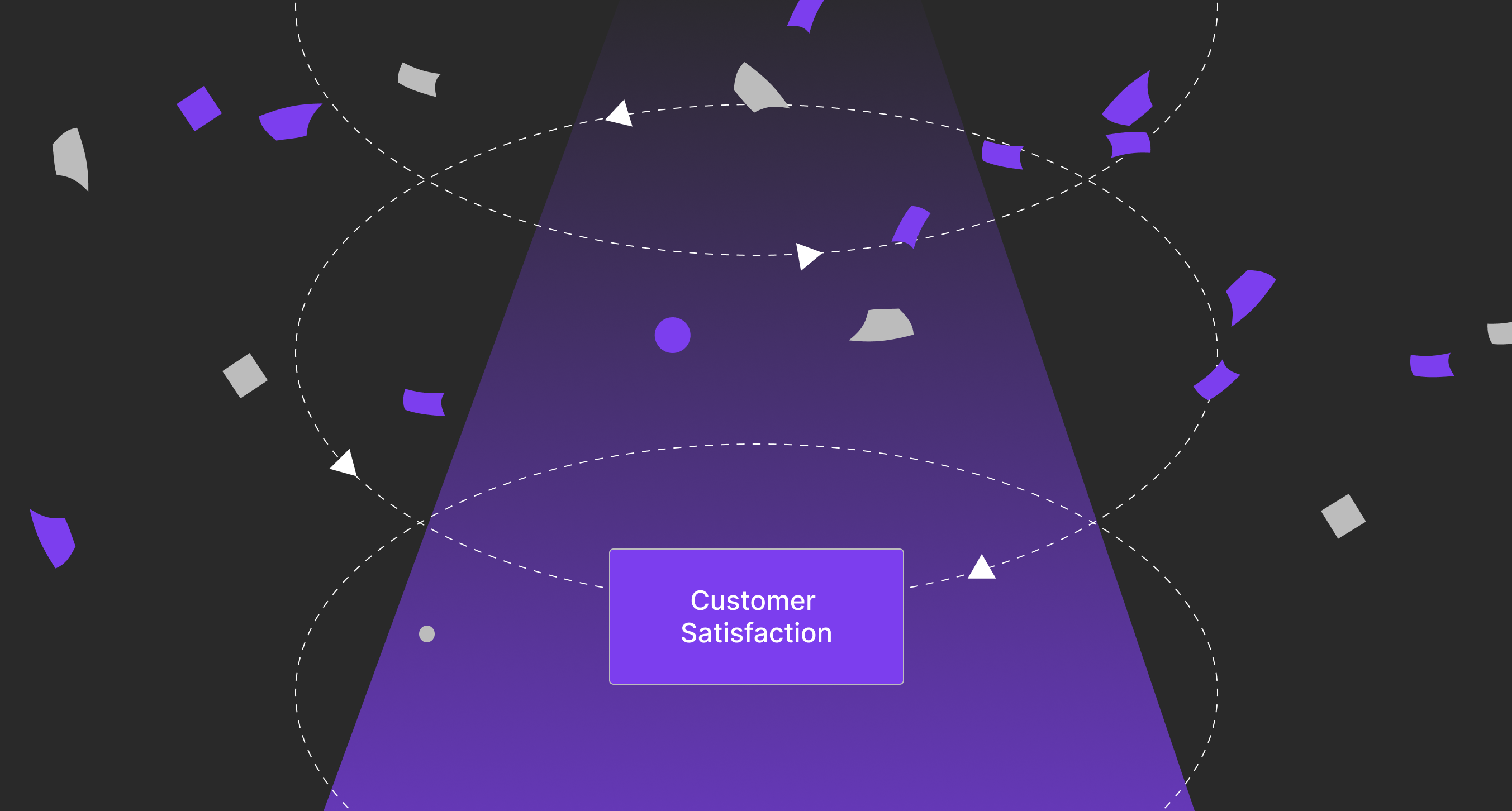

.png)

.png)
.png)
-min%20(1).png)
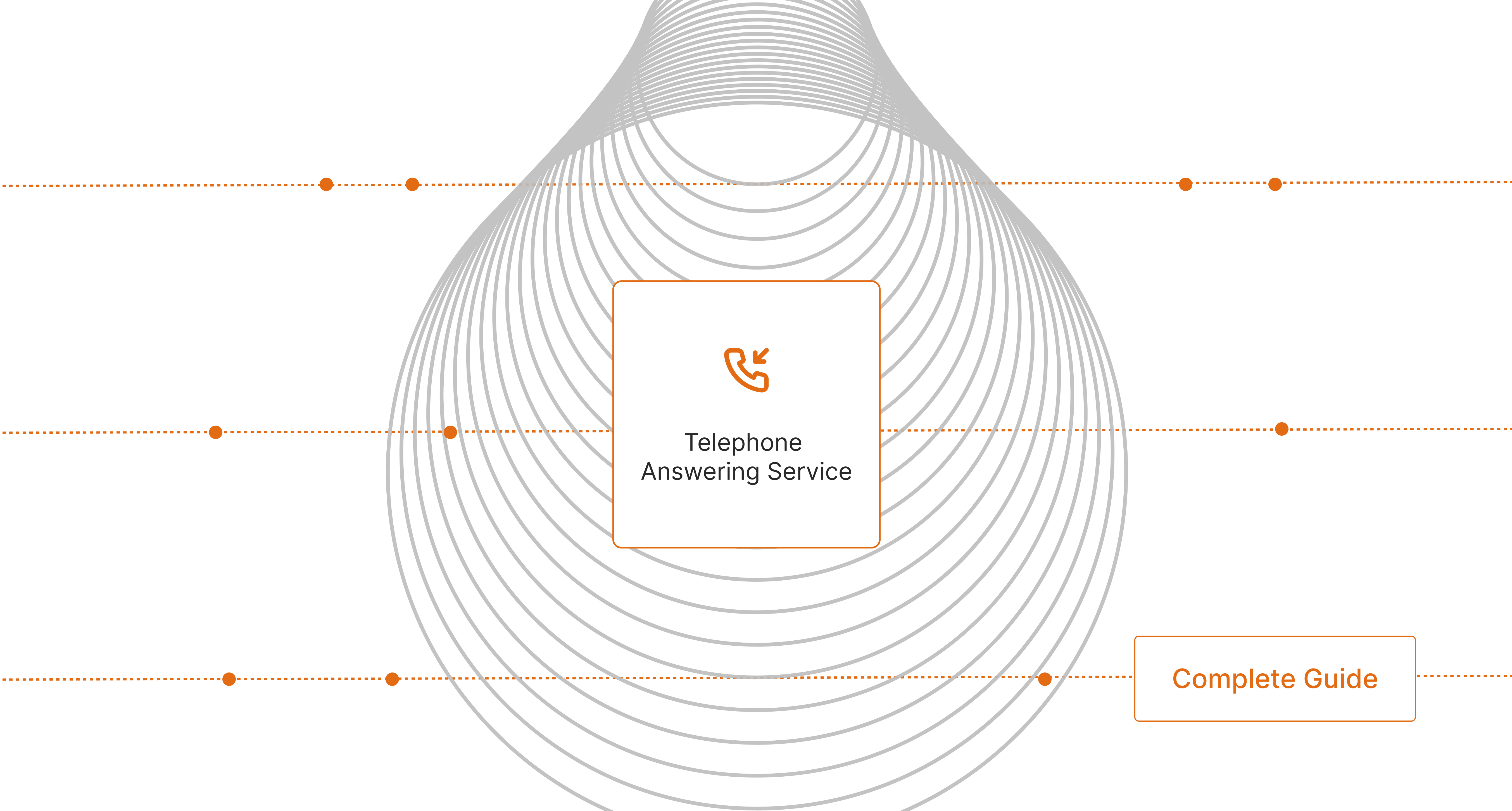



.webp)
.png)


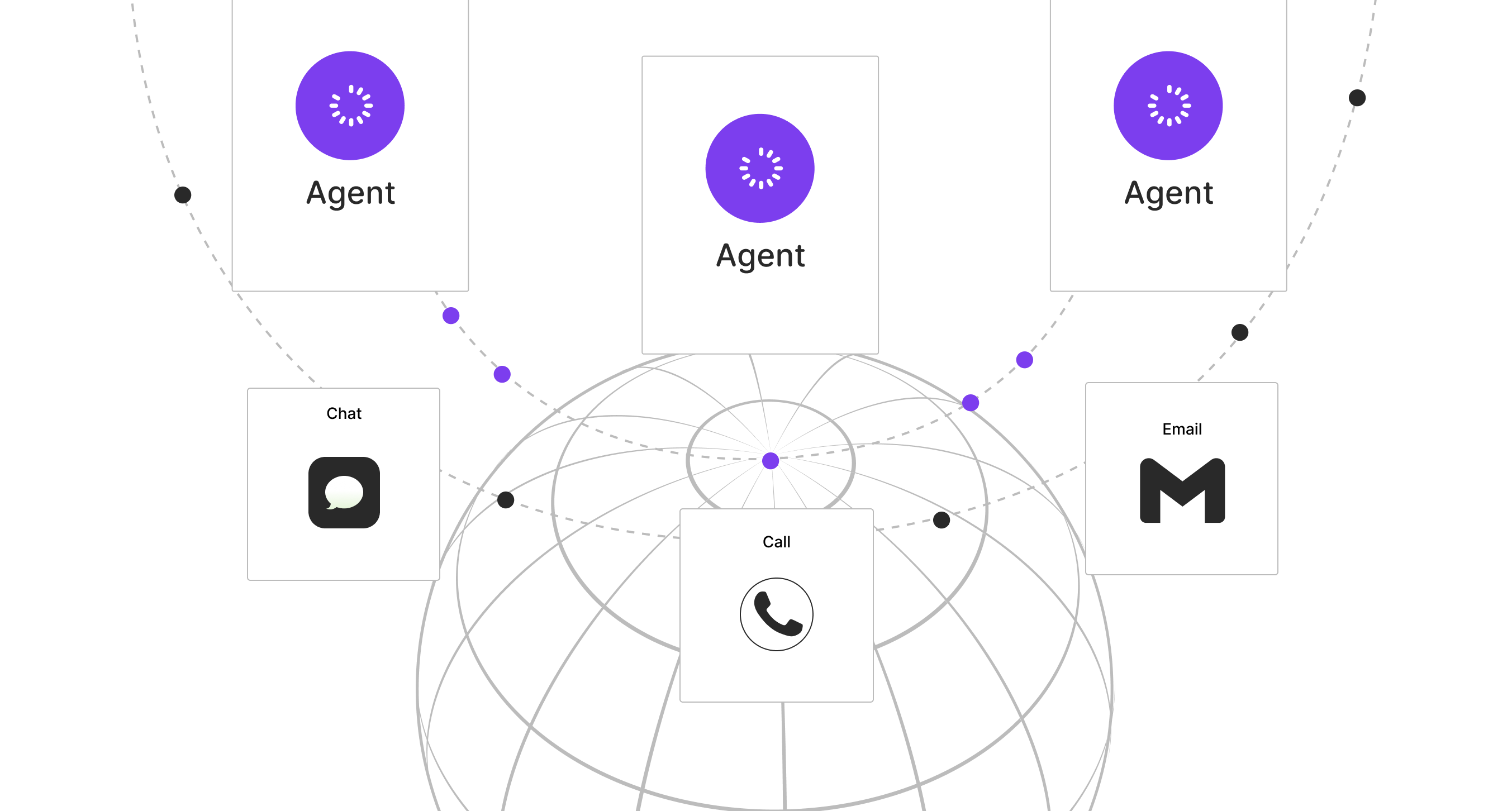
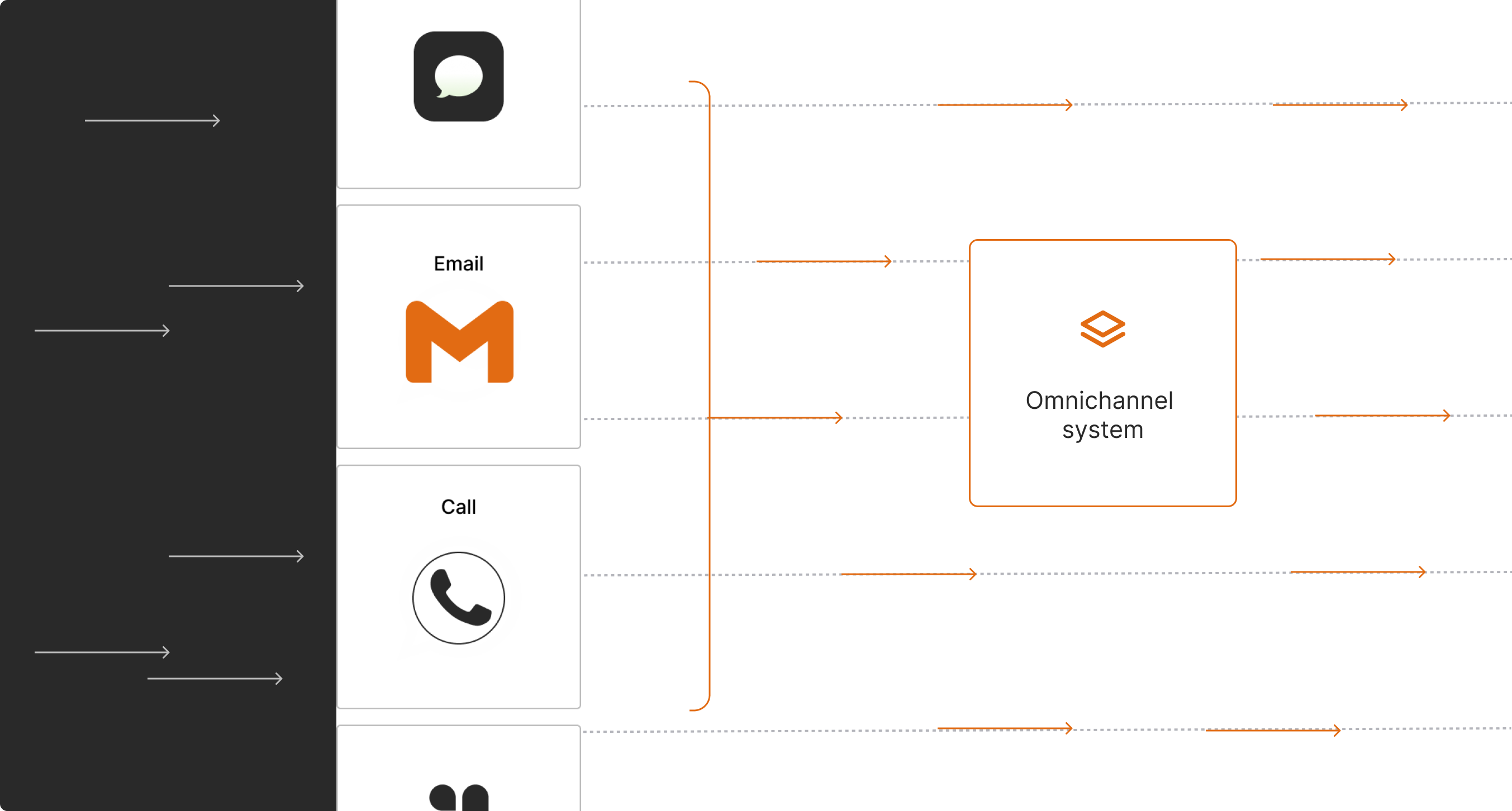


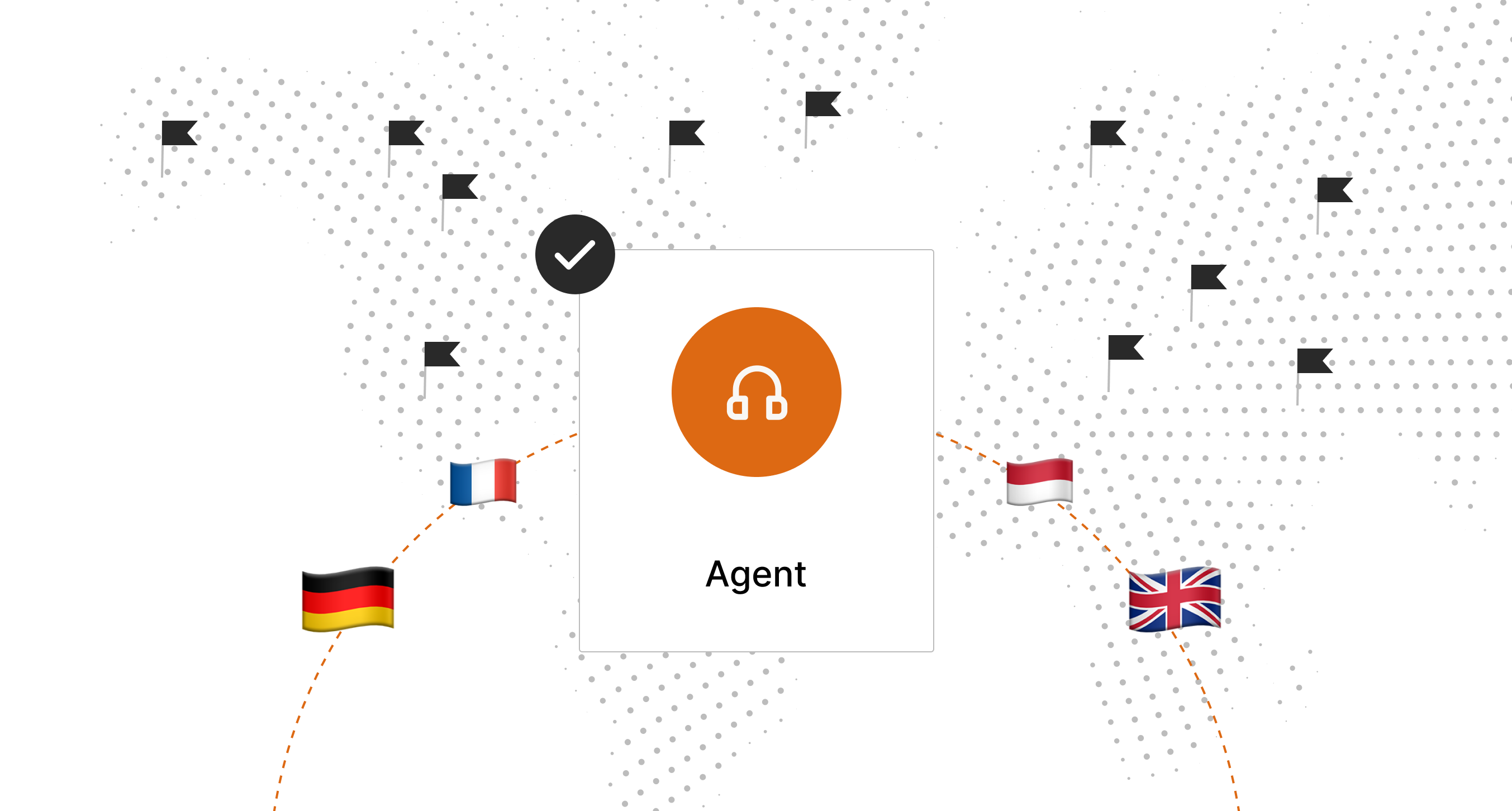
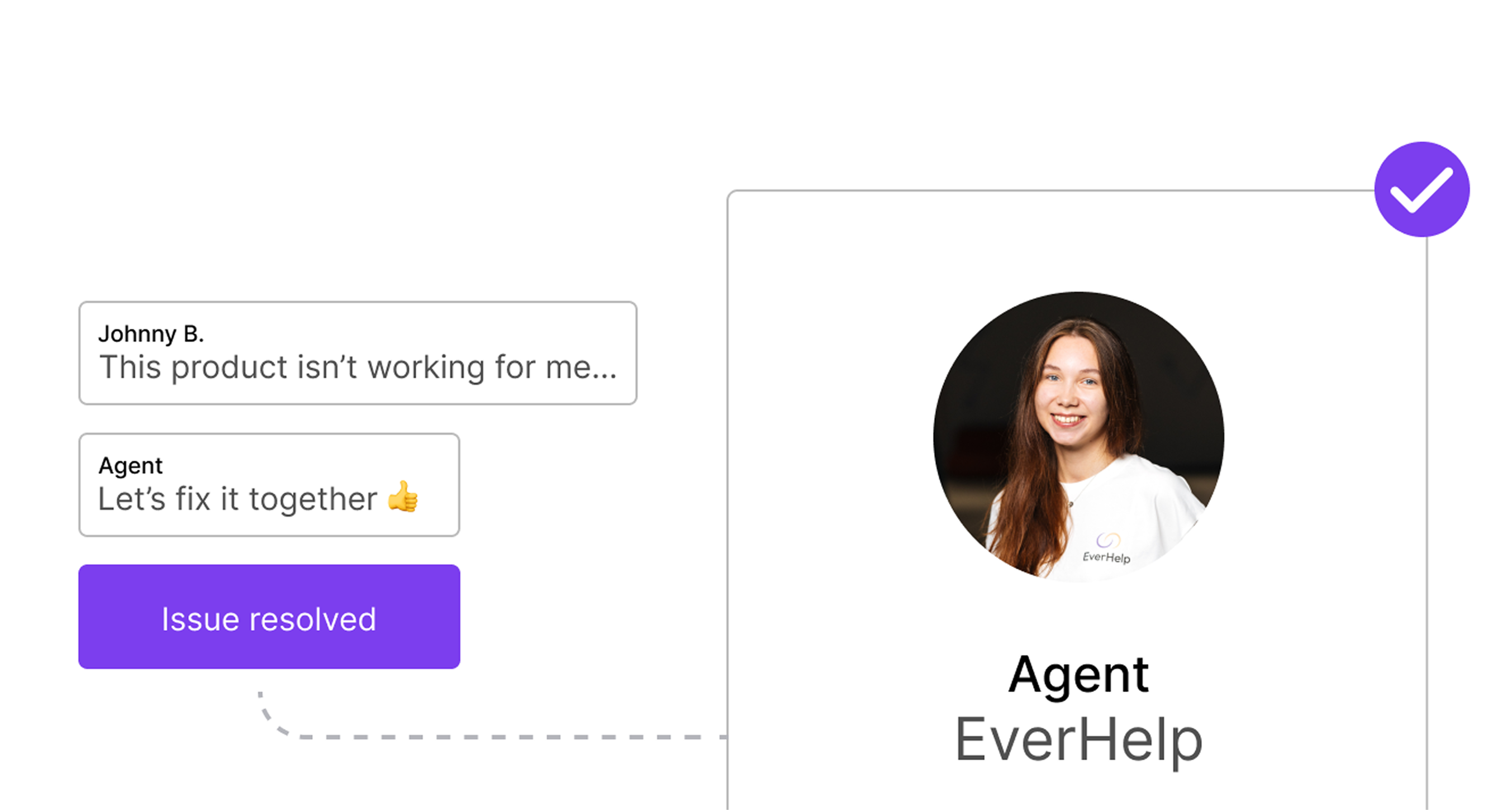


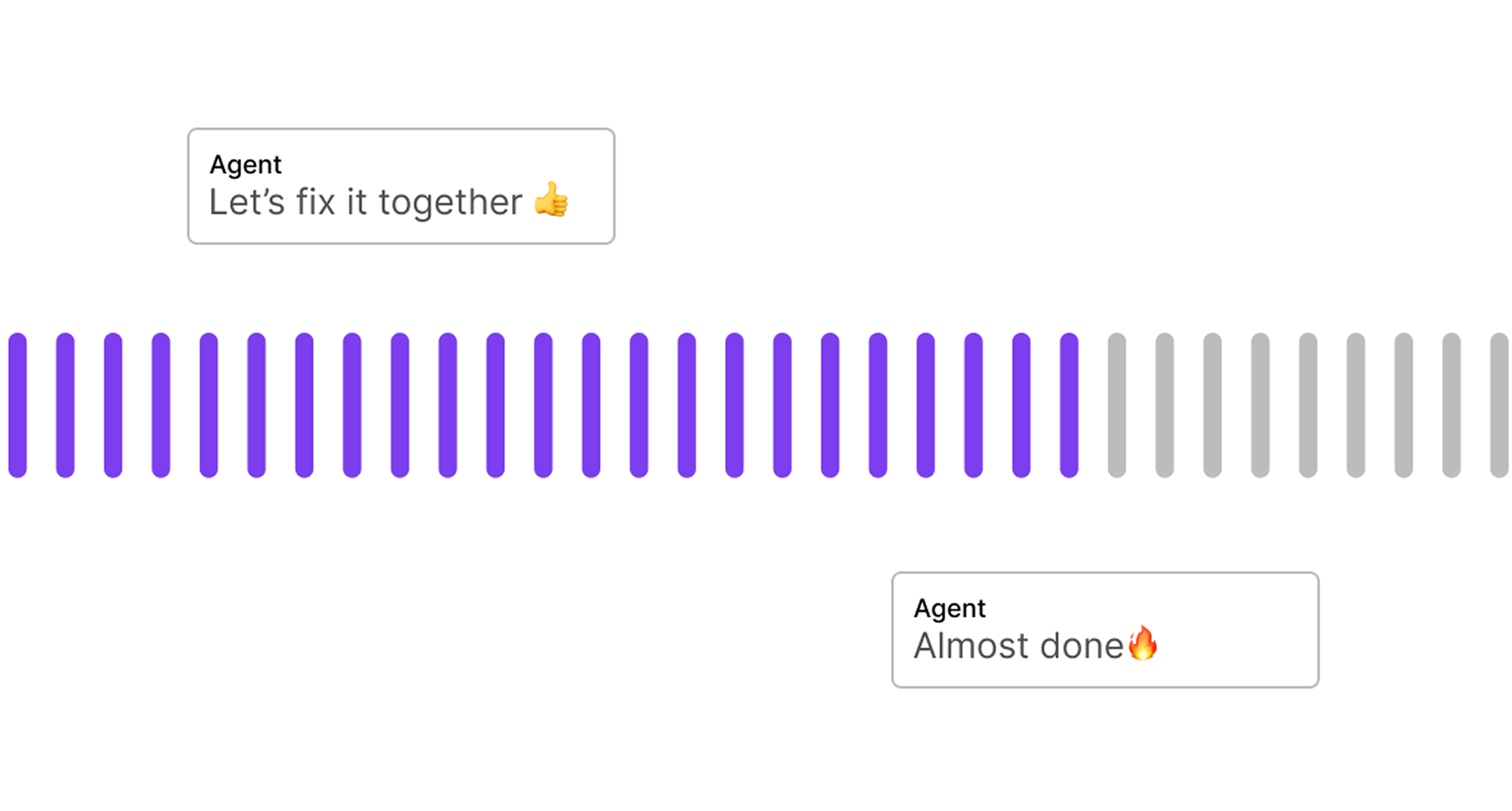


.webp)






















